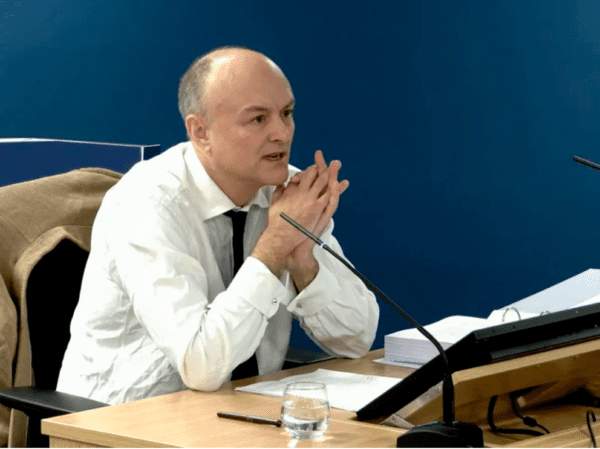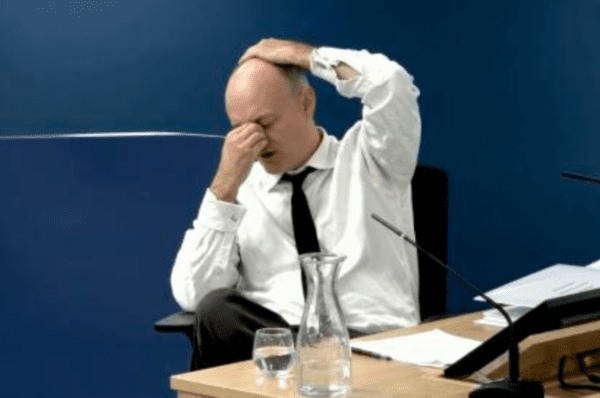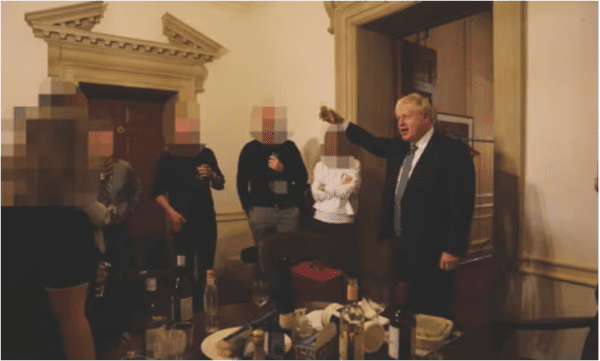For the past 16 months, the United Kingdom’s official COVID-19 inquiry task force has been investigating every aspect of the country’s response to the COVID-19 pandemic, which infected at least 22.5 million Britons, and killed an estimated 232,000, as of 6 October 2023.
The inquiry, which has largely operated in the shadows of the British political consciousness since its inception, has recently attracted fresh attention from the nation’s media and public due to developments in its scope that now involve it covering more newsworthy topics. At the beginning of last month, the inquiry began the public hearings section for its ‘Module 2’ investigation, which covers “Core UK decision-making and political governance” during the pandemic, with the most notable speakers being heard this week and last. These include Lee Cain, former Director of Communications, Dominic Cummings, former Adviser to the Prime Minister and Helen MacNamara, former Deputy Cabinet Secretary, who worked directly under Boris Johnson during his Premiership at the height of the pandemic in the UK.


Dominic Cummings, former Adviser to Boris Johnson, gives evidence to the UK Covid-19 Inquiry. Left image source: https://i.guim.co.uk/img/media/4acb87fcdac5111ac0a173669cfcff55481ae6a8/43_0_3914_2348/master/3914.jpg?width=465&dpr=1&s=none. Right image source: https://www.thetimes.co.uk/imageserver/image/%2Fmethode%2Fsundaytimes%2Fprod%2Fweb%2Fbin%2F5e25ae06-7afd-11ee-bb16-11767fb57dc4.jpg?crop=4320%2C2880%2C0%2C0.
Cain and Cummings, who both testified on 31 October, laid bare damning evidence against the British government and how the pandemic was handled during its worst months. Cummings described the Cabinet Office as a “dumpster fire” and “bomb site”, vulgarly disparaging the Cabinet as “useless f***pigs” in WhatsApp messages from August 2020 revealed during the hearings – language which Cummings has apologized for using.
Cain offered a similar analysis of the government’s dysfunction at the time, claiming that Covid-19 was “the wrong challenge for him (Johnson)”, and that “indecision probably was a theme of Covid that people did struggle with inside No 10.”, suggesting that there was never a time in the Covid-era during which those in power were fully aware of their actions and their consequences. One major criticism from those with internal knowledge during the time of the pandemic was that apart from Johnson, the head of government, there did not seem to be any other central leadership figure leading the Covid response, which was confirmed by Cain, who said that “the point was nobody quite knew who was the point person who should be driving this machine.”
In her hearing the following day on 1 November, Helen MacNamara highlighted significant shortcomings within the government on preparedness, while also calling out the toxic culture that existed within Downing Street. In written evidence, MacNamara argued that “women working in No 10 and the Cabinet Office were experiencing very obvious sexist treatment”, which was “impacting on their work as they were finding this distressing and frustrating”. MacNamara described a “macho and heroic” culture within government offices, which she asserts was “problematic because it meant debate and discussion was limited”.
The trio of witnesses were often at odds with each other during and following their time in government – messages emerged this week showing that Cummings told colleagues he wished to “personally handcuff her (MacNamara) and escort her from the building.” However, their analyses of the situation all paint a similar, increasingly familiar picture of the British government: one of dysfunction, internal distrust, and domestic and international disrepute.
The investigation has clarified this picture since the pandemic when Johnson’s government was roundly condemned for flouting lockdown rules and hosting parties at the height of the pandemic in the ‘Partygate’ scandal when the general public was prohibited from doing the same. Johnson is expected to appear before the inquiry and deliver a statement in December, with extracts from a speech suggesting he will argue that it would have been “very unlikely” to avoid the country’s first lockdown through prior action. The necessity of an initial lockdown, however, is not likely to be high on the list of the nation’s priorities, and considering Johnson argues that the Partygate report was one of the main factors in his political demise, he may struggle to conjure up a coherent explanation for his own government’s mismanagement of the pandemic.

Johnson hosted parties disguised as ‘work events’ during the pandemic, such as this one on 13 November 2020 when the general public was being told to “minimize time spent outside your home.” Image source: https://assets.publishing.service.gov.uk/government/uploads/system/uploads/attachment_data/file/935448/New_November_Guidance_-_Social_Distancing_6th_Nov_Web_Accessible.pdf.
The ongoing inquiry and its potential consequences take heightened significance when considering the looming possibility of a general election on the horizon, which is guaranteed to take place within the next 15 months. The election – as things stand – will pit current Conservative Prime Minister Rishi Sunak against Labour’s Keir Starmer, Leader of the Opposition. Conservative prospects for the election are already glum, polling at a mere 23% to Labour’s 47% according to YouGov. Indeed, if a General Election were to take place tomorrow – according to Electoral Calculus – Labour would sweep up 443 seats, while the Conservatives would only be able to hang on to 133, a seat gain of 245 for Labor, or a 217-seat loss for the Conservatives. If the inquiry continues to expose controversies and limitations within the Johnson government, and Sunak, who was once a part of this administration, fails to properly distance himself, it could spell even greater opposition gains. Despite having a leader that has been described as unprincipled and uncharismatic, Labour will no doubt be counting down the days until the election comes.
Cover image caption: British police officers stand guard in front of a hearing center. Image source: https://i.guim.co.uk/img/media/0f727f4a4b6be13180e71cda3c9ab85bb729c5c8/0_178_4387_2631/master/4387.jpg?width=620&dpr=2&s=none.







